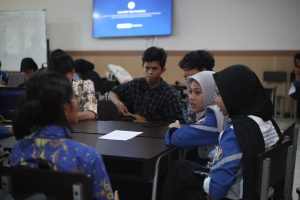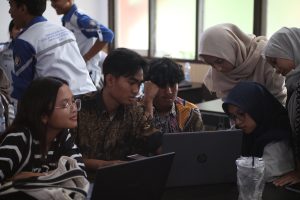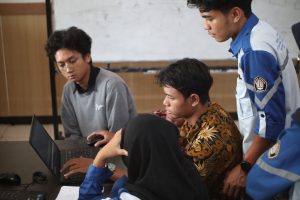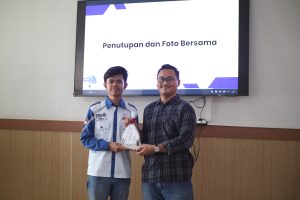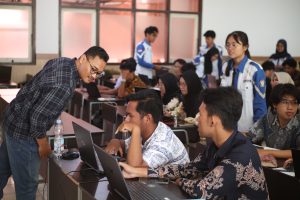In the construction world, a bridge is a structure used as a transportation route that passes through rivers, lakes, highways, railways, etc. The function of the bridge itself is to connect a road that is cut off due to a river or ravine. Bridges are also part of the infrastructure supporting human mobility, especially in terms of the economy. As a step towards Advanced Indonesia, effective and efficient infrastructure development continues to be encouraged, especially in the construction of supporting bridges.
Alongside the above, there is currently much software that makes it easier for construction actors to design buildings that will be worked on, one of which is the SAP2000 application, a program used to create and analyze all types of structures in a building, one of which is a bridge building.
DIPOVIL, a research bureau in the Department of Civil Infrastructure Engineering and Architectural Design, is developing activities in SAP2000 and balsa training carried out by the Construction Division and attended by DIPOVIL internal and active students. With this activity, it is hoped that students will get an idea of the bridge design process that prioritizes aspects of high-efficiency value to increase students’ enthusiasm for participating in the competition.
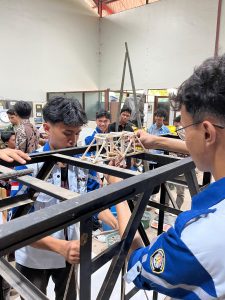
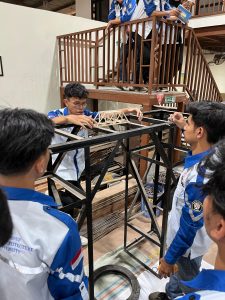
This activity is carried out in two days, November 23-24, 2024. This activity is in the form of training attended by all internal DIPOVIL Vocational School and active students of Civil Infrastructure Engineering and Architectural Design consisting of providing materials, assignments, making balsa, and testing the efficiency of balsa by the committee to participants as a form of training in the use of SAP2000 software and making balsa designs. At the SAP2000 and Balsa DIPOVIL 2024 Training event, the material provision stage presents two speakers in one day guided by the MC, with the duration of each presentation session being 60 minutes and a question and answer session for 10 minutes. The second stage, namely November 24, 2024, was held in direct balsa-making training by participants based on the material given in the previous stage by the speaker to the participants.
